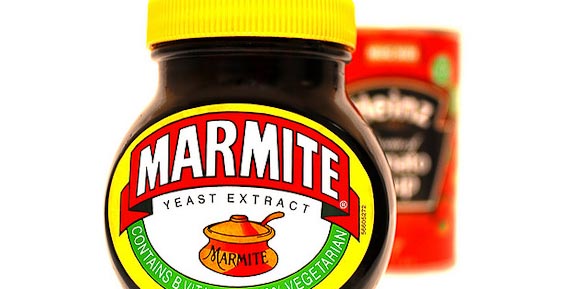Ten British Expat Food Cravings

Expat food cravings are a curious thing, particularly British ones. There is, for example, an entire generation who can’t live without Bisto and Paxo stuffing for the Sunday roast, an activity that’s conducted even in wildly inappropriate climates. There are others for whom the right milk for the ritual nice cup of tea is essential.
You’d be amazed how many apparently common essentials of the British diet are hard to find around the world. Many Asians, for example, are lactose-intolerant, meaning fresh milk – as opposed to the condensed gloop – is hard to come by: and it’s a rice-growing region, meaning decent bread has historically been thin on the ground outside the former French possessions. And, of course, most observant Muslims don’t eat pork, meaning Vitamin P is hard to come by in any shape or form.
Here are the three food items that I’d need to be available within an hour or so of home before I’d commit to living anywhere.
Bread
You’d think bread would be self-evident. But there are swathes of Asia where the only bread available is sugary, squashy, packet “roti” – and dietary habits such as sandwiches die hard.
Butter
There is no substitute for butter when making scrambled eggs, mashed potatoes or many sauces. Mercifully, most countries have restaurants that use it, meaning the dedicated expat can tap into the restaurant supply chain, while any export section in a big-city supermarket will include it.
Bacon
Bacon is not as hard to find as you might think: it’s available in Israel, Turkey, parts of Malaysia and Indonesia, while there’s an entire Facebook page devoted to pork in Egypt. Beef bacon, with its oddly grainy texture, is not an acceptable substitute, although China’s myriad pork products will make up for the lack of the classic. That said, bacon, or a very close pork-based relation, is a culinary dealbreaker for me.
And here are seven that I’ll live without until folk come to visit bearing care packages.
Non-Sweet Mayo
Mayonnaise, as a product, is typically not hard to find. Finding one that doesn’t feature sugar as its second, or perhaps third, ingredient, generally is.
Mustard
Thanks to the global spread of the burger, squeezy mustard is usually findable if you work at it. Further, anywhere that can support a supermarket with a “weird foreign foods” section will usually have a jar or two of non-burger mustard.
Cheese
I wouldn’t have thought I could live without cheese but, in fact, while I’ll binge on the stuff in Europe and occasionally splurge on it in Asia, it wouldn’t be a deal-breaker to me when it came to living somewhere. Note that the product called ‘keju’ in Malaysia and Indonesia is not cheese as you know it.
Salt and Vinegar Crisps
Britons and Australians might consider salt and vinegar crisps a basic flavour. That’s news to much of the world: in Indonesia, the defaults are barbeque beef, chicken, chilli and seaweed (though chilli-lime crisps have a very similar impact to classic salt and vinegar). And, no, a poncy $10 packet of seasalt and balsamic posh crisps is not the same.
Marmite
A culinary beartrap for the typical European, who mistake this brown, yeasty, salty gloop for a form of chocolate spread, this is a staple in any British expat care package. Australians have similar issues with Vegemite, which, both sides of the cultural divide can confirm, is simply not the same.
Pork Sausages
Many, many cultures have invented ways of shoving meat into casings. But beef sausages are a very different beast from pork sausages, chicken slurry things shouldn’t even be dignified with the name, and please don’t get me started on the abomination that is sweet sausages.
Image credit: Marmite by David Martin Hunt on Flickr’s Creative Commons.